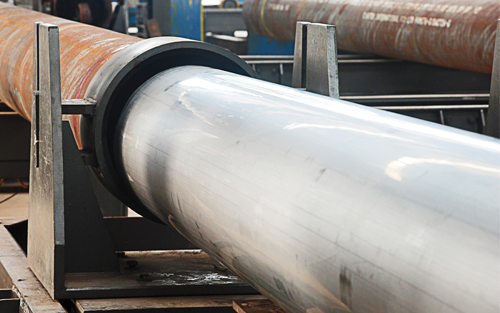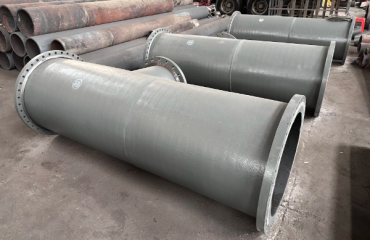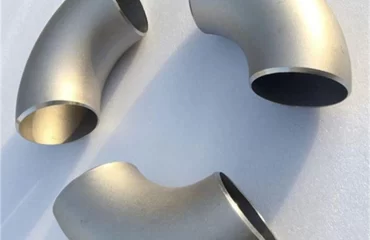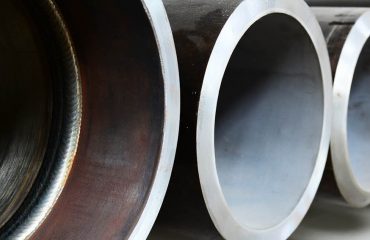
What is the MECHANICAL CLAD LINED PIPE
Mechanical clad lined pipe is a type of pipe used in various industries, including the oil and gas industry, petrochemicals, and other high-pressure applications. It utilizes “cladding” – a process of bonding or fusing one metal (the “cladding” material) onto another (the “base” material) – to create a pipe that combines the mechanical properties of the base material with the corrosion resistance of the cladding material.
Features of Mechanical Clad Lined Pipe
1. Corrosion Resistance
The cladding material is typically a corrosion-resistant alloy (CRA), such as stainless steel, Inconel, or another nickel alloy. This provides the pipe with a high degree of resistance to corrosion, even under harsh conditions, such as high temperatures and pressures, and in the presence of corrosive substances.
2. Mechanical Strength
The base material is typically a stronger, less expensive metal, such as carbon steel. This provides the pipe with the necessary strength and toughness to withstand the mechanical stresses it will be subjected to in service.
3. Cost-Effectiveness
While the cladding material is often more expensive than the base material, using a clad pipe can still be more cost-effective than using a pipe made entirely of the cladding material. This is because the cladding is typically much thinner than the base material, so less of it is needed.
Process of Making Mechanical Clad Lined Pipe
The manufacture of mechanical clad lined pipes usually involves the following steps:
-
Preparation: The surfaces of the base and cladding materials are thoroughly cleaned and prepared. This is necessary to ensure a good bond between the two materials.
-
Bonding: The cladding material is bonded to the base material. This can be done through a variety of methods, including hot rolling, explosive bonding, or welding.
-
Inspection: The clad pipe is inspected to ensure that the bond between the base and cladding materials is sound and that the pipe meets all necessary specifications. This can involve a range of non-destructive testing methods, such as ultrasonic testing or radiographic testing.
-
Finishing: The pipe is then finished to the desired size and shape. This can involve cutting, bending, and/or forming the pipe.
Mechanical clad lined pipe, with its combination of strength, corrosion resistance, and cost-effectiveness, is a valuable tool in industries where pipes are exposed to harsh conditions.
What are some other industries that use mechanical clad lined pipe?
Mechanical Clad Lined pipes, due to their enhanced durability and corrosion resistance, are used in a variety of industries that require the transport of aggressive materials, or where the pipes are exposed to extreme conditions. Here are some examples:
1. Chemical Industry
In chemical processing plants, pipes are often exposed to acids, alkalis, and other corrosive substances. Mechanical Clad Lined pipes are used here due to their excellent corrosion resistance.
2. Nuclear Industry
The nuclear power industry uses these pipes in parts of their systems exposed to high radiation levels. The cladding material can help resist the corrosive effects of radiation.
3. Desalination Plants
Desalination plants, which convert seawater into fresh water, often use these pipes due to their resistance to the corrosive effects of salt water.
4. Pulp and Paper Industry
In the pulp and paper industry, pipes are often exposed to corrosive substances like black and green liquors. Clad pipes offer the necessary resistance to withstand these conditions.
5. Food and Beverage Industry
Stainless steel clad pipes are often used in the food and beverage industry due to their resistance to a variety of substances and their ability to be easily cleaned and sanitized.
6. Pharmaceutical Industry
The pharmaceutical industry uses these pipes because they are resistant to a variety of chemicals and can be easily cleaned and sterilized, which is critical in environments where contamination must be avoided.
7. Power Generation Industry
In power plants, especially those using fossil fuels, there are sections where pipes are exposed to high temperatures, pressures, and corrosive substances. Clad pipes are used in these situations due to their superior strength and corrosion resistance.
Remember, the specific type of cladding material used can vary depending on the specific needs of the industry or application.




You must be logged in to post a comment.